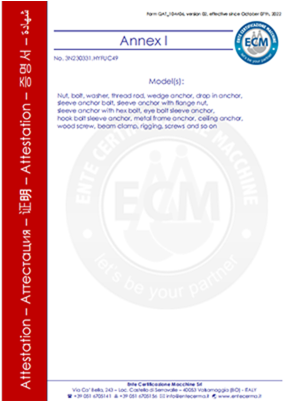নভে. . 24, 2024 01:56 Back to list
Common Washer Dimensions for Various Bolt Sizes in Engineering Applications
Understanding Standard Washer Sizes for Bolts
In the realm of construction, engineering, and manufacturing, the significance of washers cannot be overstated. Washers play a crucial role in providing stability and support for bolts, enabling secure fastening and helping to distribute loads. Moreover, they protect surfaces from damage, prevent leakage, and reduce friction. To ensure the effectiveness of washers, it's essential to use the correct sizes that correspond to the bolts they accompany. This article explores standard washer sizes for bolts, providing a useful guide for professionals and DIY enthusiasts alike.
What Are Washers?
Washers are thin, flat, circular discs made from materials such as metal, plastic, or rubber. They are placed between the nut and the surface being fastened, or between the bolt head and the surface. Washers can be classified into several types, including flat washers, lock washers, and sealing washers, each serving distinct purposes.
1. Flat Washers These are the most common type, designed to distribute the load of a fastener. They help prevent damage to the surface and reduce the likelihood of loosening due to vibrations. 2. Lock Washers These are used to prevent the loosening of fasteners over time. They come in various designs, including split, tooth, and wave washers, each providing different locking mechanisms. 3. Sealing Washers Typically used in applications requiring a watertight or airtight seal, these washers often incorporate a rubber or silicone layer to enhance their sealing capability.
Standard Washer Sizes
Washers are sized according to the bolts with which they will be used, and the selection of the correct size is vital for ensuring that the assembly functions as intended. Standard sizes for flat washers are commonly defined by the bolt size, which typically follows the United States (US) customary system or the metric system.
standard washer sizes for bolts

Metric Washer Sizes - M3 3mm bolt diameter, washers typically have inner diameters of around 3.2mm and outer diameters of 7mm. - M4 4mm bolt diameter, often paired with washers that have an inner diameter of approximately 4.2mm and an outer diameter of 8mm. - M5 5mm bolt diameter, with washers commonly having an inner diameter of around 5.3mm and an outer diameter of 10mm. - M6 6mm bolt diameter, matched with washers having an inner diameter of around 6.4mm and an outer diameter of 12mm. - M8 8mm bolt diameter, with washers typically at an inner diameter of 8.4mm and an outer diameter of 16mm.
US Standard Washer Sizes - 1/4 bolt 0.281 inner diameter, 0.625 outer diameter. - 5/16 bolt 0.344 inner diameter, 0.750 outer diameter. - 3/8 bolt 0.406 inner diameter, 0.875 outer diameter. - 1/2 bolt 0.500 inner diameter, 1.000 outer diameter. - 5/8 bolt 0.625 inner diameter, 1.250 outer diameter.
These sizes ensure compatibility with various bolt systems and are crucial for achieving a tight and reliable connection.
Material Considerations
In addition to size, the material of the washer is another essential factor. Common materials include steel, stainless steel, nylon, and bronze. Steel washers are widely used due to their strength and durability, but in environments prone to corrosion, stainless steel or nylon washers may be preferable to enhance longevity and performance.
Conclusion
Understanding standard washer sizes for bolts is fundamental for anyone involved in fastening applications. Selecting the right washer ensures not only the security of the assembly but also protects the surfaces being joined. Whether you're a professional engineer, a contractor, or a DIY enthusiast, being informed about washer sizes will help facilitate better practices, leading to safer and more efficient projects. Always consult relevant industry standards and guidelines to ensure the best choices for your specific applications.


